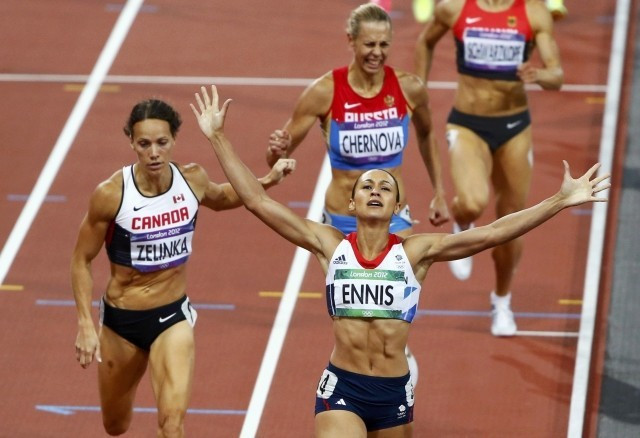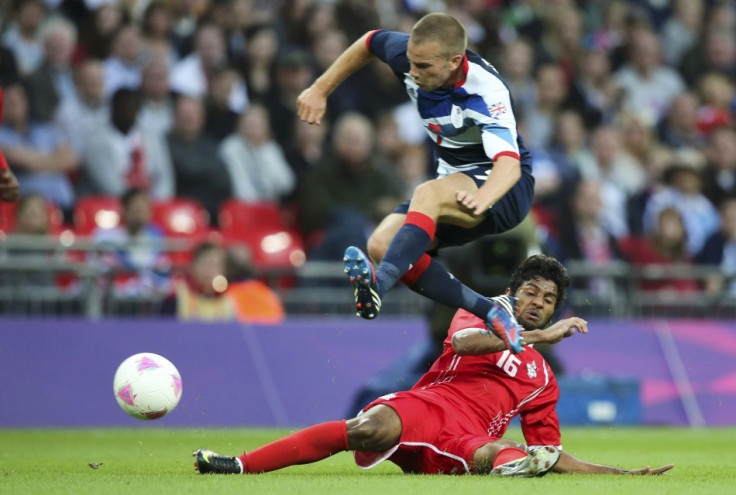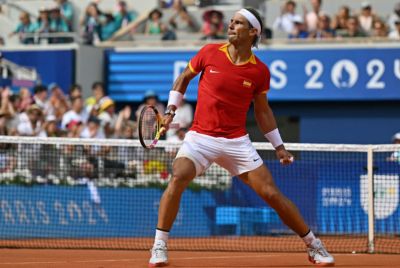Olympics vs Premier League Football: The Case For and Against [BLOG]

Olympics
Now over the years, friends and colleagues have inappropriately tarred me with the "sports hater" brush because of my dissidence towards the shrine of football.
Once upon a time I use to love the "beautiful game" but as time moved on, I lost interest because it was less about sporting achievement and more about the grimy, decadent and financially undeserved culture that surrounds it.
The London Olympics 2012 or any Olympic event is testament to what sports should be about: hard work, determination, looking after your body and mind and struggling through financial constraints to be the best of the best. Injury or no injury, the game must go on, as demonstrated by Great Britain women's hockey captain Kate Walsh who underwent surgery on a broken jaw but still said she was fit enough for the next Olympic heat. It was a break from celebrity culture and fast money, fast cars and fast women that we are slapped in the face with every day.
We had found people worthy of worship. Real people working tirelessly for four years for this one moment.
Cheating is rooted out, drug testing is getting tougher and tougher and in the most part, good humour and sportsmanship, even if you came last or barely finished a race, is faced with gratitude and humility. The variety of sporting ability is vast and people feel that the athletes provide them with hope.
Sport against the odds
While training Olympian athletes varies from country to country, the UK is notoriously tight on helping future stars achieve their goals. Unlike many other countries, there are no financial incentives in place to win, funding to help nurture athletes is criminally minimal and many athletes (including a friend of mine) have had to work several jobs while fitting in hours every day of training, just to gain a shot at qualifying. In the UK, sports fields are still being sold off or shut and even in Greenwich - the heart of many Olympic events outside the stadium- is shutting it's only public pool.
It's sport against the odds.
Unless you managed to secure corporate sponsorship, a la Jessica Ennis, Victoria Pendleton et al, you are consigned to trying to struggle to achieve your dream because life gets in the way.
Now I am not saying all Olympian athletes are saints (cough, cough - Michael Phelps) but they certainly supply better role models and a way of life than the football culture that has frankly become a joke. Football is not about football anymore.
Every day in the UK, we are pepper-sprayed in the face with news about a footballer being snapped up by another club for a salary that equates to the GDP of a small country. At the same time, we have seemingly endless declarations about a sore foot or knee that means they will be sitting on the bench for a season. Most of them huff and puff round the football pitch and questions over UK footballers' fitness against others regularly crop up.
While many argue that what I am about to say "is not indicative of the footballing culture," I would invite you to show me one single day in the press where the following has not been uncovered.
We see footballers tumbling out of nightclubs every day, blowing tens of thousands of pounds on booze and in same cases, women as well. As a society, we are bombarded daily with racism on the pitch, dressed up as "footie banter," physical violence and footballers impregnating anything with fake tan, false eyelashes and hair extensions.
We see violence on the pitch, swearing and gutter speak when a footballer disagrees with the referee. We see head butting, spitting and punching.
When off the pitch, surrounding this mess of a culture, we are blasted with sex scandals, floods of Wags (wives and girlfriends) which deliver the message to our youth that it doesn't matter that your partner is cheating on you with other women and/or prostitutes, taking drugs, setting fire to possessions because they are bored (Mario Balotelli tweeted pictures of himself turning his aerosol into a flame thrower while staying a hotel, because he had just created £400,000 worth of damage to his Cheshire home after setting off rockets from inside the building) and in some cases verbal and physical abuse.
Oh and don't forget the number of rape cases that I cannot even bring myself to write about.
Kicking around a ball
And charity? You do realise the level of tax breaks that they get for setting up an "academy." Yes, not every footballer is a "crook and despot or a game played by racists and rapists" as Geoffrey Wheatcroft from the Guardian described them as but the culture that engulfs the sport that is no longer about kicking around a ball.
Yes, people like gossip but frankly some of us are fed up of it.
The Olympics was the prime example where it was JUST about the sport - the blood, sweat and tears to be the champion of your discipline - not about being axed as Captain of running around a pitch for half an hour because you slept with your team mate's wife.
Olympics brought humility, drive, determination and celebration to sporting world that has been saturated for four years with footballers.
Bring on Rio Olympics 2016.
Lianna Brinded

Football
The Olympics were an amazing event, and one of the best that sport as a whole can offer - that's why, alongside the football World Cup, it's the biggest worldwide event that the most people travel for.
And unlike the World Cup, which only 32 countries can qualify for, the Olympics gives almost every country in the world the opportunity to be involved. Watching each one walk out in the Opening Ceremony is a reminder of just how big our planet really is, and the behaviour of the fans, the competitors, and everyone involved over the last two weeks has been nothing short of exemplary.
But can't we just leave it at that? Why do we have to use it as a chance to take a swipe at footballers? Every sport has its cheaters, its villains, its minority group who don't have a conscience or a care for whether they have been a good sportsman for the sake of a cheap win.
We witnessed those very people in the Olympics: the Chinese, South Korean and the Indonesian badminton teams who threw matches; Greek athlete Voula Papachristou, who made racist jokes and was subsequently thrown out of the tournament; a hurdler, wrestler, shotput gold medallist and gymnast all caught taking drugs after they stood at the opening ceremony and took an oath to uphold the athletes' code. And then there was Ezekiel Kemboi, who was allowed to compete - and won gold - despite facing charges in his home country of Kenya for stabbing a woman.
Partying every night
Living in a gated community, and going under the radar for the vast majority of four years, it's easy to create a picture perfect image of the Olympic athletes, while footballers are watched like hawks for 10 months of the year and then while they go on holidays. Every indiscretion is used as evidence against them, and if the same were applied to the likes of Mo Farah, Jessica Ennis and Sir Chris Hoy, they themselves would surely admit that the squeaky clean image wouldn't last long.
Team GB weightlifter Zoe Smith kept a blog during the games, and in one of her posts she revealed that during the two weeks she had gone out partying almost every night.
People commented that she shouldn't feel bad for letting her hair down, she's only human and they would do the same thing if in the Olympic village surrounded by athletes who were up for a good time. But would these commenters afford footballers the same freedom to be human?
The Olympics taught us a lot about coming together, feeling patriotic and having a positive spirit and attitude. Every aspect of society can learn from this, not just footballers.
And on the subject of learning, surely the Olympics have also taught us that rather than always looking for a negative, ie if Olympics are good then football must be bad, we should just enjoy the sport for what it is?
Vanessa Keller
© Copyright IBTimes 2025. All rights reserved.




















